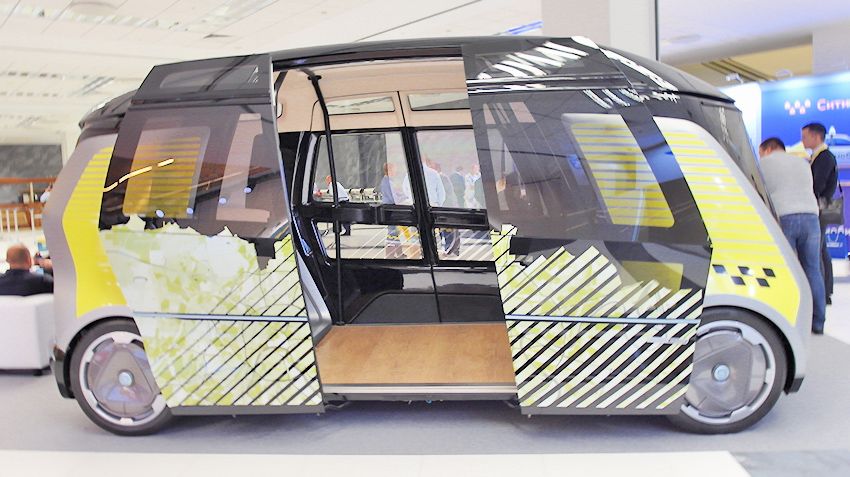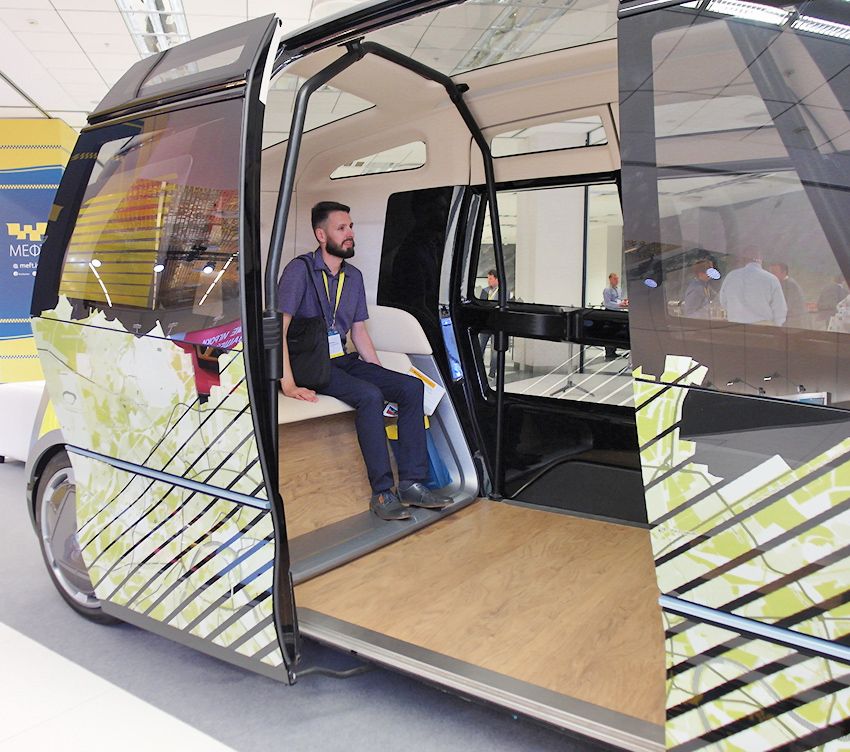The British did not agree to impose the concept of "mobility of the future"

18 November 2019
Three quarters of British drivers still want to run your own machines
A lack of confidence in technology security and emotional attachment to owning a car are two key obstacles to the future of car sharing and Autonomous driving them.
According to a new study "Chelovekoobraznoe: the study of making man Autonomous vehicles" conducted by Neckermann Strategic Advisors, in cooperation with a specialized Agency 7th Sense Research UK Ltd., it may take at least 10 years before Autonomous vehicles and sharing will become an integral part of society. This, combined with a noticeable decline in the prestige of the "possession" of their own vehicle, suggests that the majority of modern motorists are not yet ready for the concept of mobility of the future.
The study found that people today are simply not ready to make a "double re-evaluate," their habits in relation to autonomy and collective use of personal vehicles even in the foreseeable future.
While the automotive and electronics industry are committed to greater integration of Autonomous technologies in traditional vehicles, a new study shows the way to buyers required for adoption of the concept cars with automatic driving (or simply AV of Abakarov). One of the findings of the study highlighted that awareness raising about the benefits of Abakarov acts as a vital factor to combat fears of neoprobirovannye technologies and increase the level of trust required for widespread recognition of the autonomy of the broad masses of end users.
The survey showed that at present 75% of UK drivers do not agree or do not define their attitude to the future AV (robotarm), along with a strong psychological resistance to the future co-own a car (ICE) or electric vehicles (EV).
CEO of 7-th Sense Research UK Ltd. Fergus McVeigh explains: "the Prospect of joint ownership – perceived as the actual abandonment of the subject that is often perceived as an additional mechanical member of the family – the result is a distorted perception of what the technology of autonomy. The problem is too big for most of the UK population, so that it can be solved in one step. The industry needs to convey the idea that AV (robomary) are designed to make your life better, not harder, to drive in the frame or to compromise the sense of freedom of movement".
Managing Director of Neckermann Strategic Advisors and study co-author Lucas Neckermann adds: "Consumers should be reassured of the benefits of AV, and not confused by the technology. The promise of increased security, convenience and reliability of journeys much more compelling than endless discussions about the charging problem and the number of miles traveled in Autonomous mode."
The study also shows that 60% of respondents would prefer individual ownership model as the most attractive method of access to independent transport. This contradicts the previous assumption the automotive industry about what the joint property will be the basis of future mobility. Neckermann adds: "It's time to engage more with the consumer".
Accordingly, the 7-th Sense interviewed more than 3000 people in the UK using the broad spectrum test are strictly compiled for the creation of objective statistical data that can be analyzed to identify the social expectations for future mobility. The study of Neckermann complements the study of the vast global data and interviews with regulators and vehicle manufacturers and technology Autonomous vehicle.
Co-author of Neckermann Frederick John, said, "globally we become less conservative towards new technologies. So, electricity and radio took 40 and 20 years respectively, to overcome the 80 percent penetration, while smartphones and social networks it took less than ten years. However, these techniques have not replaced the items of emotional attachment. For Abakarov should not be preference, whether you take his firstborn son from the hospital, or go on a family vacation. That consumers were separated from this emotional connection with their traditional cars in favor of the unknown, they must first understand how AV can improve the comfort of their journeys. In the industry, you need to create a single, consolidated authoritative centre to promote the technology of Autonomous mobility for the society and to encourage the participation of end users in development of such technologies of the future. We look forward to working with partners across the industry to create such a strong community."

PS And still seems to behind all this, something Orwellian. Well, the most simple philosophy: every man has the "right to left", and what will happen to him when all of his tiny movements will be tracked even if its individual (not to mention the public) robotarm. In addition, the country's most famous individuals in the world feels just a physical revulsion at the very idea of sharing your car with someone else. That we Russians are accustomed to the bus, is not how much, but even we are afraid of the idea that, for example, exceedingly zealous hackers could take control of the vehicle in which you ride or worse your child. To confidence in a purely digital system in a country where supposedly "the world's most secure databases" are on the black market the next day (and often even before), is still very, very far away. In exchange for some (often imaginary) staff, and become a real hostage is unclear what and who is a prospect..
|
|
|
Element was not found.








